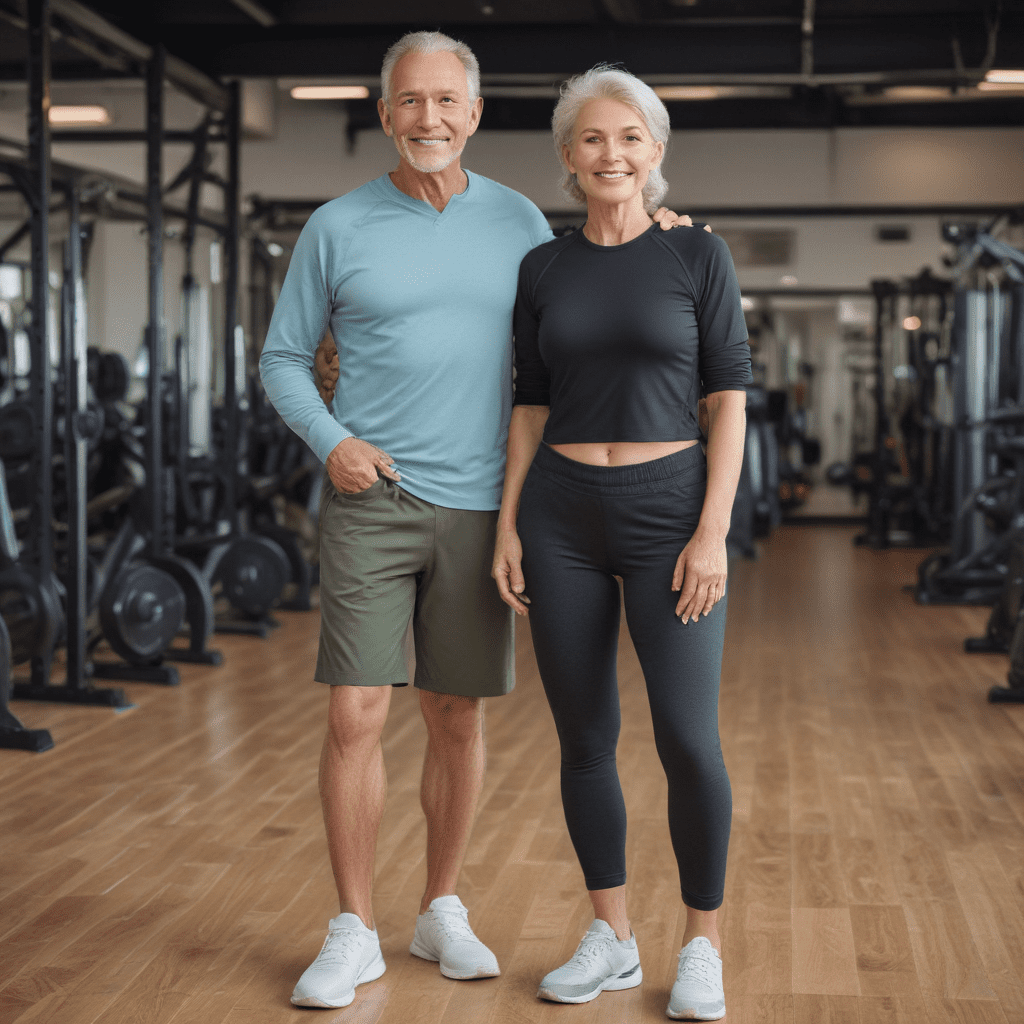
Benefits of Regular Exercise for Older Adults
Improved Cardiovascular Health
Regular exercise has been proven to significantly improve cardiovascular health in older adults. It helps strengthen the heart muscle, increases blood flow, and lowers blood pressure. Exercise also improves cholesterol levels by raising levels of "good" cholesterol (HDL) and lowering levels of "bad" cholesterol (LDL). These improvements can help reduce the risk of heart disease, stroke, and other cardiovascular complications.
Reduced Risk of Chronic Diseases
Exercise has also been shown to reduce the risk of developing a number of chronic diseases that are common in older adults, including type 2 diabetes, obesity, and certain types of cancer. Exercise helps regulate blood sugar levels, improves insulin sensitivity, and reduces body fat, all of which can help prevent or manage type 2 diabetes. Exercise also helps maintain a healthy weight and reduces the risk of obesity. Research has also shown that regular exercise can help reduce the risk of certain types of cancer, including colon cancer, breast cancer, and prostate cancer.
Enhanced Bone and Muscle Strength
As we age, it becomes increasingly important to maintain strong bones and muscles. Exercise can help build and strengthen bones and muscles, which can help reduce the risk of osteoporosis and other bone-related conditions. Exercise also helps improve balance and coordination, which can reduce the risk of falls.
Improved Balance and Coordination
Balance and coordination are essential for everyday activities, such as walking, getting dressed, and preparing meals. Exercise can help improve balance and coordination by strengthening the muscles and joints used for movement. This can help reduce the risk of falls and improve mobility.
Increased Cognitive Function
Exercise has also been shown to have a positive impact on cognitive function in older adults. Studies have shown that exercise can improve memory, attention, and learning abilities. It can also help prevent or slow the progression of cognitive decline associated with aging.
Better Sleep Quality
Exercise can also improve sleep quality in older adults. Regular exercise helps regulate the body's natural sleep-wake cycle, making it easier to fall asleep and stay asleep throughout the night. Exercise can also help reduce stress and anxiety, which can interfere with sleep.
Reduced Risk of Falls
As we age, our risk of falling increases. Falls can be serious, leading to injuries, disability, and even death. Exercise can help reduce the risk of falls by improving balance and coordination, strengthening muscles, and increasing flexibility.
Improved Mood and Well-being
Exercise has been shown to have a positive impact on mood and well-being in older adults. Regular exercise can help reduce stress, anxiety, and depression. It can also improve self-esteem and confidence. Exercise can also help older adults feel more connected to others and less isolated.
Increased Energy Levels
As we age, it is common to experience a decline in energy levels. Exercise can help increase energy levels by improving cardiovascular health, increasing muscle strength, and reducing fatigue. Exercise can also help improve sleep quality, which can lead to increased energy levels during the day.
FAQ
Q: How much exercise do older adults need?
A: The American College of Sports Medicine recommends that older adults get at least 150 minutes of moderate-intensity aerobic activity each week, or 75 minutes of vigorous-intensity aerobic activity each week. They also recommend that older adults do muscle-strengthening exercises at least twice a week.
Q: What are some examples of moderate-intensity aerobic activities?
A: Some examples of moderate-intensity aerobic activities include brisk walking, swimming, cycling, and dancing.
Q: What are some examples of muscle-strengthening exercises?
A: Some examples of muscle-strengthening exercises include lifting weights, using resistance bands, and doing bodyweight exercises like squats and push-ups.
Q: Is it safe for older adults to exercise?
A: Yes, it is safe for older adults to exercise. However, it is important to talk to your doctor before starting an exercise program to rule out any underlying health conditions that may need to be considered.


